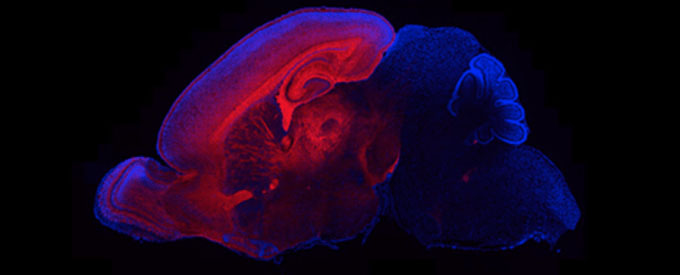Welcome to the Page Laboratory
My laboratory is focused on understanding how the components that make up the cellular architecture of the brain (neuronal and glial cell types) are generated and assemble into functional circuits that underlie behavior and cognition. The mechanisms by which these processes occur are largely unknown, and yet, disruptions can have enormous societal and personal consequences in the form of neurodevelopmental and psychiatric disorders. Such disorders provide a window into the basic genetic, molecular and cellular mechanisms involved in building the brain. This insight may be used in turn to benefit those affected by mental illness, pointing to molecular targets for improved diagnostics and therapeutics.
Autism spectrum disorder (ASD) is one such disorder. ASD is characterized by a range of phenotypes, including deficits in social behavior, as well as an altered trajectory of brain growth in some cases. Clues to mechanisms come from reports that PTEN-PI3K-mTOR, monoamine, neuropeptide and synaptic signaling pathways have been implicated in ASD pathogenesis. Understanding how these risk factors influence brain and behavior will give us basic insight into how the brain develops and how this process is altered in ASD.
Along these lines, my laboratory makes use of transgenic and knockout mice to understand the biology of how risk factors for autism and related neurodevelopmental disorders influence the development of cell types and circuits underlying behavior and cognition, and to test efficacy of potential therapeutics. The development of structural and functional connectivity in the cerebral cortex, the seat of our highest cognitive capabilities and a structure that is highly relevant for autism, is a major area of focus for our work.
We use a variety of techniques, including mouse genetics, histology, molecular cell biology, cell culture, genomics, informatics, pharmacology, imaging and behavioral phenotyping.
Latest News
Job Opportunities
The Page Lab is looking for talented postdoctoral fellows and graduate students. If you are motivated and passionate about science, then we want you to be part of our team.
If you are interested in joining the lab, please send your CV and cover letter with a short summary of past and future research interests to [email protected].
